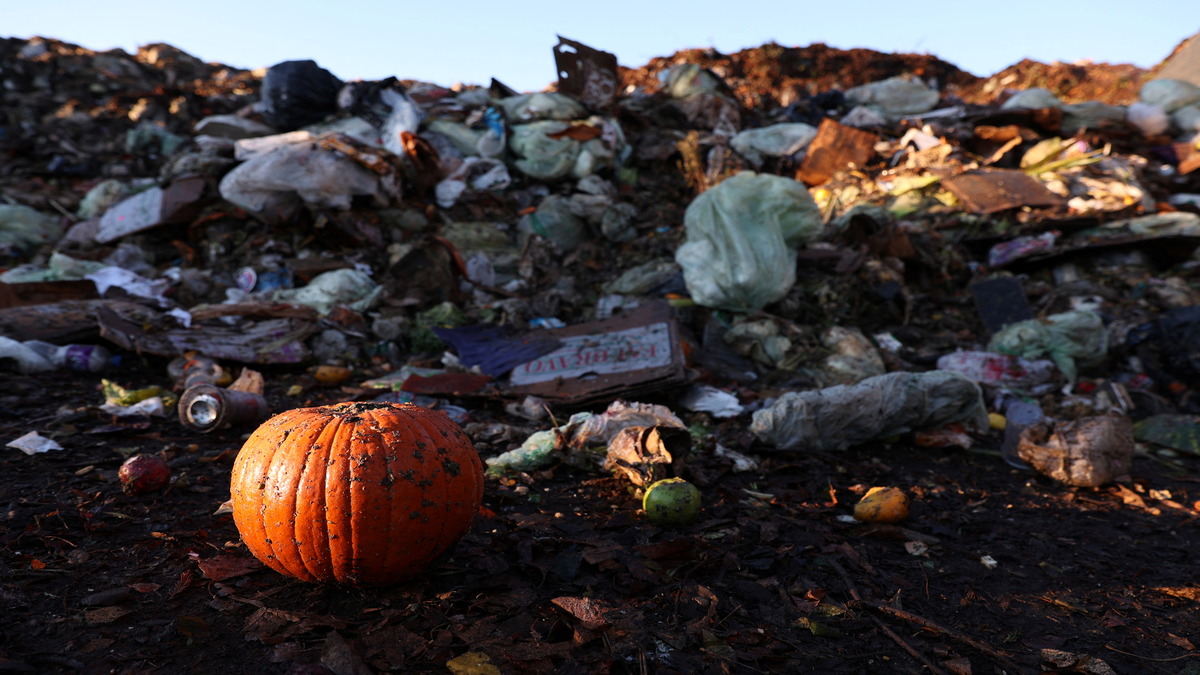The world wasted over one billion (100 crore) meals each day in 2022, an estimated 19 per cent of the food produced globally, a new United Nations report has found. The findings also reveal that as many as 783 million (78.3 crore) people go hungry worldwide.
The worrying figures came to light after the UN Environment Programme’s (UNEP) Food Waste Index Report was published on Wednesday (27 March). The report also points out that food waste is not just a “rich world” problem.
Let’s take a closer look.
What does the UN report say?
The UN report says that each person wastes about 79 kilogrammes of food annually, which is equivalent to at least one billion meals wasted globally every day, reported Associated Press (AP).
About 1.05 billion metric tonnes of food was squandered by households, restaurants, and retail sectors in 2022, according to the report.
Households contributed the most to food waste – 60 per cent or 631 million metric tonnes, followed by 28 per cent from food service, or restaurants, and about 12 per cent from retailers.
“Food waste is a global tragedy. Millions will go hungry today as food is wasted across the world. Not only is this a major development issue, but the impacts of such unnecessary waste are causing substantial costs to the climate and nature. The good news is we know if countries prioritise this issue, they can significantly reverse food loss and waste, reduce climate impacts and economic losses, and accelerate progress on global goals,” Inger Andersen, Executive Director of UNEP, said.
Quick Reads
View AllThe report also marked a distinction between food “loss” and food “waste”. Food loss refers to the crop and livestock commodity (consumed by humans) discarded early in the supply chain such as vegetables that decay in fields. Food waste is the edible food and its inedible parts thrown out by households, restaurants and retail stores.
According to the report, the food wasted by households in high- and middle-income countries varied by only seven 7 kilogramme per person annually. Richard Swannel, a co-author and director of Impact Growth at Waste and Resources Action Programme (WRAP), said this data shows that food waste “is not a rich world problem. It’s a global problem,” reported AP.
Chronic hunger
The UN report is a stark warning as it comes at a time when over 700 million people face chronic hunger globally.
It also says that a third of the population around the world is subjected to food insecurity.
Fadila Jumare, a project associate at Busara Center for Behavioral Economics who has studied the prevention of food waste in Kenya and Nigeria, told AP that the people who face food insecurity and cannot afford healthy diets are affected more by the problem of food waste.
“For humanity, food waste means that less food is available to the poorest population,” Jumare said.
Impact on climate
Food waste also fuels climate change and hurts the economy. It is a global concern as producing food requires large amounts of land and water. Most of the wasted food ends up in landfills, leading to greenhouse gas emissions, including methane – the gas that has accounted for 30 per cent of global warming since pre-industrial times.
Food loss and waste lead to 8 to 10 per cent of greenhouse gas emissions globally.
As per the report, hotter countries waste more food than cooler ones. This is because food spoils more easily at higher temperatures due to storage and transport challenges.
The UN report stresses the role of governments, cities, municipalities and food businesses worldwide to tackle the problem of food waste and aid households with the same. According to the report, food redistribution, including giving excess food to food banks and charities, is important to reduce food waste by retailers.
“With the huge cost to the environment, society, and global economies caused by food waste, we need greater coordinated action across continents and supply chains. We support UNEP in calling for more G20 countries to measure food waste and work towards (Sustainable Development Goals) SDG12.3,” Harriet Lamb, CEO of WRAP, said, as per the UNEP report.
The UN’s SDG 12 deals with global food loss and waste and focuses on sustainable consumption and production patterns.
“This is critical to ensuring food feeds people, not landfills. Public-Private Partnerships are one key tool delivering results today, but they require support: whether philanthropic, business, or governmental, actors must rally behind programmes addressing the enormous impact wasting food has on food security, our climate, and our wallets," Lamb added.
With inputs from agencies


)

)
)
)
)
)
)
)
)



